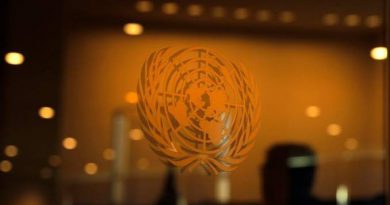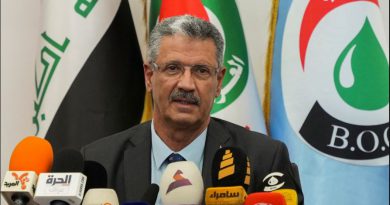United States identifies key Daesh money provider in Turkey
by Raul Redondo
Daesh’s activity in Turkey is well known as the Eurasian country’s police have conducted operations against cells of the terrorist group.
The United States has revealed the identity of a major money facilitator for the Daesh terrorist group in Turkey as part of the activity against the jihadist group’s global financial networks.
The Office of Foreign Assets Control (OFAC) of the U.S. Treasury Department noted that Daesh’s supplier Adnan Muhammad Amin al-Rawi had financially assisted the terrorist group with financial, material or technological support.
“This action coincides with the 13th meeting of the Counter Daesh Finance Group (CIFG), which includes more than 60 countries and international organizations, and plays a key role in coordinating efforts to deny Daesh access to the international financial system and eliminate his sources of income,” the official agency said.
Along these lines, the U.S. Treasury requires that all property and interests of relevant persons in the U.S. or in the possession or control of U.S. persons be blocked and reported to OFAC.
In addition, any foreign financial institution that knowingly conducts or facilitates any substantial transaction on behalf of individuals and entities designated by OFAC would be subject to Washington sanctions.
Daesh’s activity in Turkey is well known as the Eurasian country’s police have conducted operations against cells of the terrorist group. On July 19, Turkish police forces arrested 27 people in 15 districts of Istanbul for having links with Daesh; they were suspected of preparing to carry out an attack.
According to Colin Clarke, a senior investigator into terrorist financing networks with the Soufan Group, Daesh’s financial networks are, as expected, still active in Turkey. “Daesh has laundered its illicit profits in Turkey through money service businesses and intermediaries who seek to profit from illegally obtained profits. I believe Daesh’s financial networks could help sustain the group for the next decade,” Colin Clarke told Arab News.
Since last year, Turkey’s financial crime watchdog MASAK has been pursuing the terrorist group’s illegal money transfer system, pointing to those accused of transferring money to Daesh through the Hawala chain as suspects. Jewellery companies or exchange offices based in Turkey and Syria are believed to be acting as a front for these illegal money transfers.
Last November, Washington blacklisted three companies based in Turkey and two Turkish individuals on charges of providing financial and logistical support to Daesh in Syria and Iraq through currency exchange offices and import/export operations. The sanctions are designed to freeze any assets on U.S. soil in the hands of named individuals and companies and to prohibit Americans from doing business with them.
Despite the territorial defeats suffered by Daesh, such as the one in Syria, the terrorist group has found new ways to survive, such as various businesses, smuggling, donations, kidnapping and extortion to wealthy people in the areas where it operates in the eastern desert of Syria and the border region between Syria and Iraq.
“The international community realizes that exhausting Daesh’s financial resources is a major factor in neutralizing the group’s military operations. Therefore, CIFG has been monitoring and sanctioning some money transfer offices that are involved in illegitimate activities and operating in both Syria and Iraq,” said Orwa Ajjoub, a research affiliate at the Centre for Middle Easter Studies at Lund University.
Ajjoub believes that the difficulty in achieving this lies in the ability to control the process of transferring remittances from the point of sending to the moment of receipt by the beneficiaries. “Other ways of channelling resources to Daesh’s fighters include social networking campaigns and donations in crypto currencies, which require rigorous cyber security measures to contain them,” he told Arab News.
Thus, Turkey remains in the eye of the storm because of alleged links with jihadist elements. In this sense, various media have reported on the connections of the Eurasian country with mercenaries in pay assigned to groups linked in the past to terrorist entities such as Daesh or Al-Qaeda, which it uses to its benefit in the wars in Syria and Libya, where it takes an active part within the Turkish strategy aimed at strengthening its geostrategic position in the Mediterranean and the Middle East and at benefiting from the exploitation of economic zones in relation to gas and oil prospecting.
Article first published on Atalayar.



